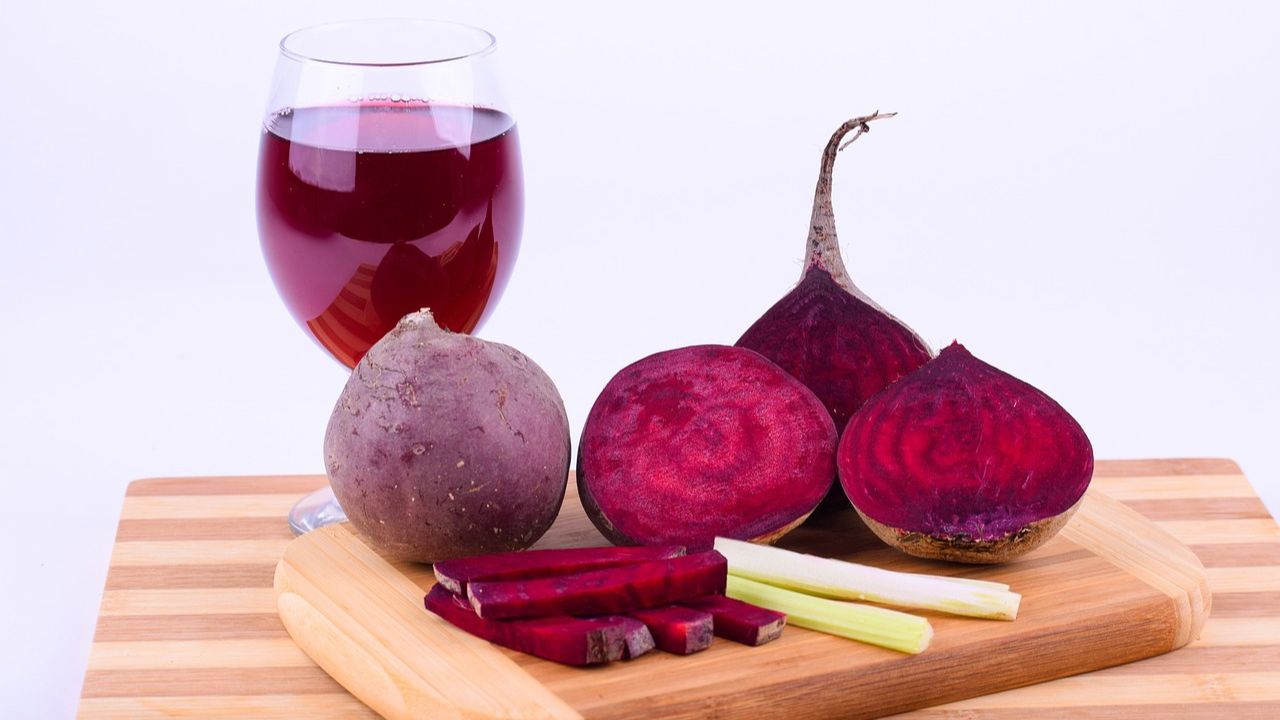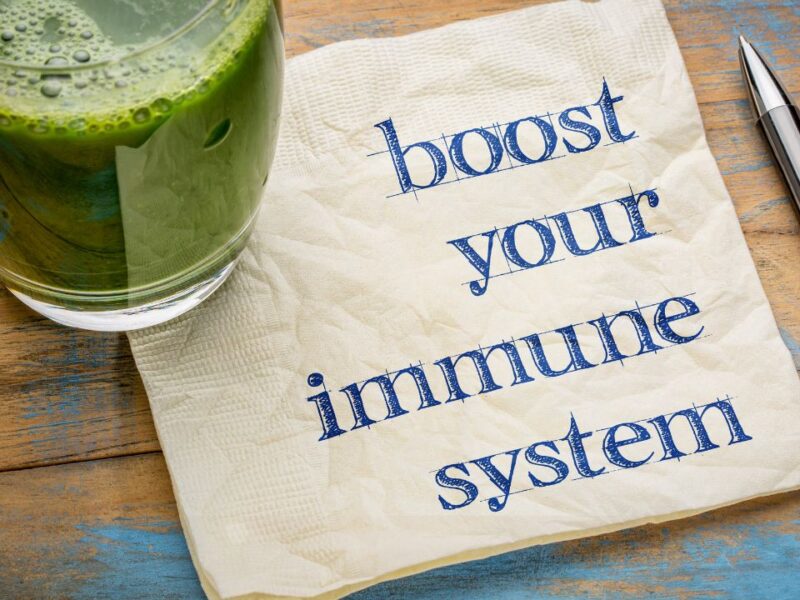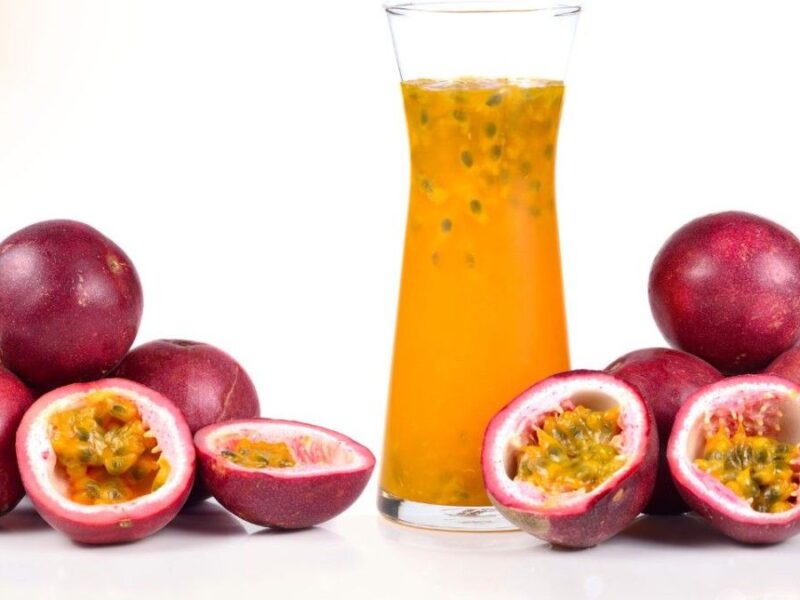Beetroot juice benefits
Ever looked at those deep purple beetroots in the grocery store and wondered what they’re good for? Beetroot Juice Benefits & Recipe Your Guide to This Superfood Drink Beyond their vibrant color, beetroots pack a surprising punch of health benefits! Beetroot juice, made by blending these tasty roots, is a great way to unlock those benefits in a refreshing drink. Let’s dive into why beetroot juice might be worth adding to your diet, from boosting your workouts to keeping your heart healthy!
What is a beetroot
Beetroot sometimes called a beet (especially in North America), is an underground vegetable that looks a bit like a round, red radish. It’s the taproot of a beet plant, which means the fleshy part grows into the soil.
Beetroots come in different colors, like red, golden yellow, and even striped! They have a slightly sweet and earthy flavor and can be eaten raw, cooked, pickled, or juiced. You might also see beet greens sold alongside the beetroot, – the edible leaves of the same plant and can be cooked like spinach. Beetroot Juice Benefits & Recipe Your Guide to This Superfood Drink
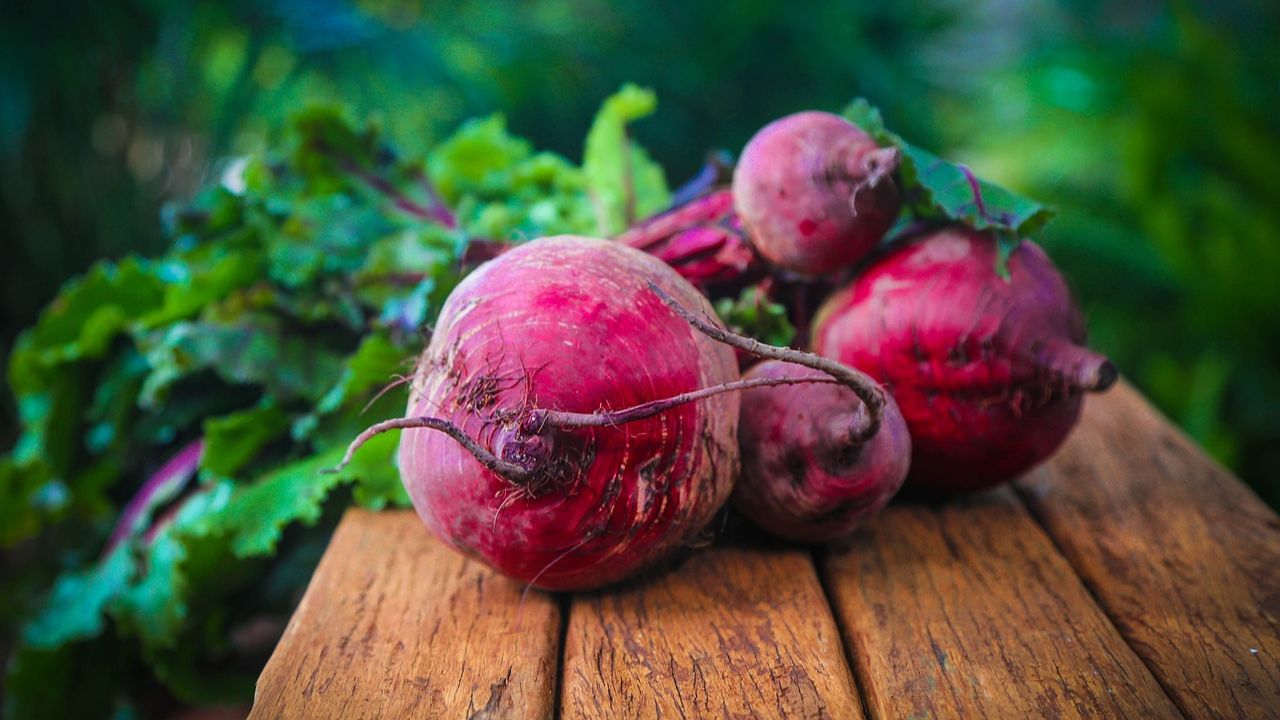
Beetroot 1 kg price
The price of 1 kg of beetroot can vary depending on where you buy it and the quality. Here’s a general idea:
- In India, You can expect to pay anywhere from ₹44 to ₹60 (around $0.50 to USD 0.70) for 1 kg of beetroot.
- The price will likely be different in other countries, but it’s a good idea to expect it to fall between $1 and $2 USD per kilogram.
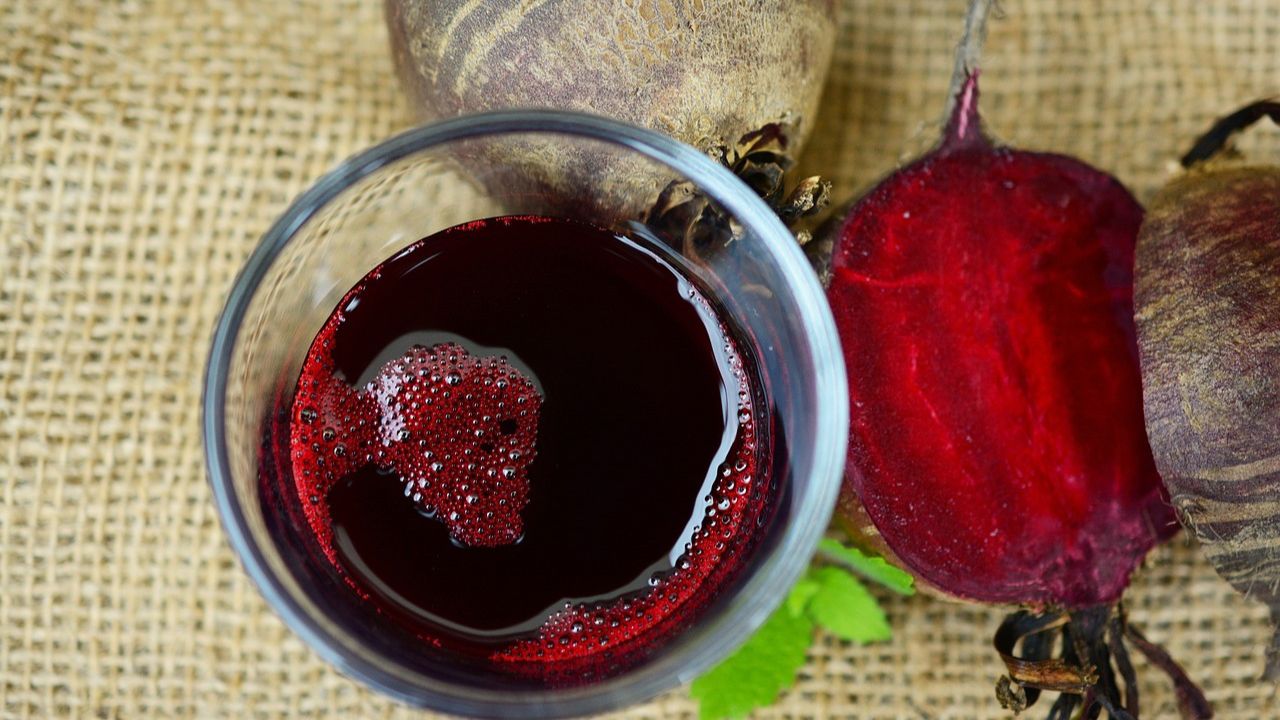
Tips for finding the best price:
- Look for deals at grocery stores or farmers’ markets.
- Consider buying organic beetroot, but be aware it might be slightly more expensive.
- Buying pre-packaged or pre-cut beetroot is usually more convenient but can cost more per kilogram.
Benefits of beetroot juice
Here are 15 reasons to consider adding a glass of this ruby-red beverage to your routine:
- Supercharge Your Workouts: Beetroot juice contains nitrates that convert to nitric oxide in your body. This can improve blood flow and oxygen delivery to your muscles, giving you extra stamina during exercise.
- Keep Your Heart Happy: Beetroot juice may help lower blood pressure, which is great for overall heart health.
- Fight Inflammation: This vibrant juice has properties that can help reduce inflammation, which is linked to many health concerns.
- Boost Your Immune System: Beetroot juice is packed with vitamins and minerals, like vitamin C and zinc, that help your immune system fight off illness.
- Glowing Skin: Who needs fancy products? Beetroot juice may improve circulation, leading to a healthier-looking complexion.
- Anemia Aid: Rich in iron and folate, beetroot juice can help your body produce more red blood cells, which is essential for people with anemia.
- Digest with Ease: Beetroot juice contains fiber, aiding digestion and keeping things moving smoothly.
- Feel Fuller for Longer: Studies suggest beetroot juice might help you feel more satisfied after eating, potentially aiding weight management.
- Brainpower Booster: Early research suggests beetroot juice may improve cognitive function and blood flow to the brain.
- Diabetic Friendly (potentially): Beetroot juice may help regulate blood sugar levels, although more research is needed.
- Liver Support: Some studies suggest beetroot juice might help protect the liver from damage.
- Lower Cholesterol: Beetroot juice may help reduce “bad” LDL cholesterol levels.
- Cancer Prevention (possible): Beetroot contains antioxidants that may help fight cell damage linked to cancer.
- Pre-Workout Powerhouse: Drinking beetroot juice a few hours before exercise can enhance your performance.
- Natural Energy Drink: Beetroot juice is a natural source of nitrates, which your body converts to nitric oxide, potentially boosting energy levels.
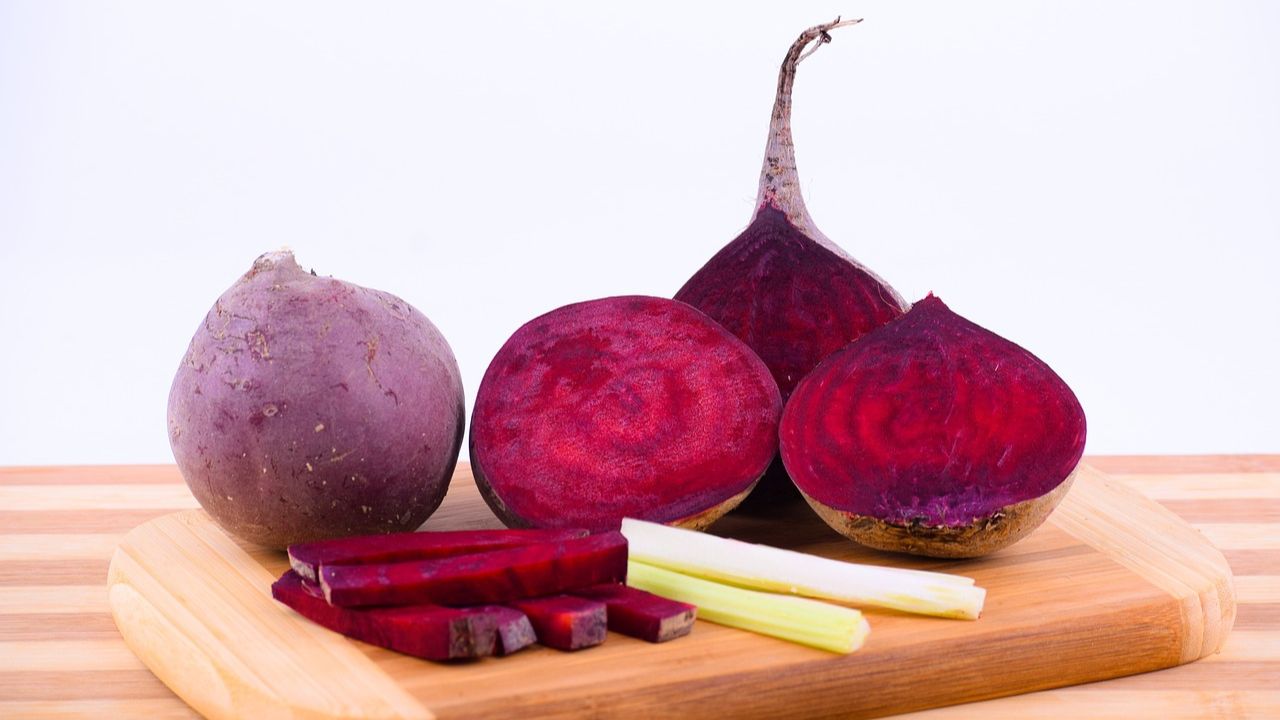
Beetroot juice recipe
Ready to unlock the health benefits of beetroot deliciously? This easy beetroot juice recipe is perfect for beginners and takes just a few minutes to whip up.
Ingredients:
- One medium beetroot, peeled and chopped (about 1 cup)
- One apple (cored and chopped) (Optional)
- 1/2 cup water
- 1/2 lemon, juiced (about one tablespoon)
- Pinch of ginger (optional)
- Honey or maple syrup to taste (optional)
Instructions:
- Wash and prep: Give your beetroot a good scrub under running water. Peel it with a vegetable peeler and chop it into small cubes. If you want sweeter juice, you can also core and chop an apple.
- Blend it up: Add the chopped beetroot, apple (if using), water, and lemon juice to your blender. If you like a little kick, add a pinch of ginger. Blend on high speed until smooth.
- Strain (optional): Beetroot juice can be a bit pulpy. To make it more transparent, pour it through a fine-mesh strainer.
- Sweeten to taste (optional): Beetroot juice can have an earthy flavor. If you find it too strong, add a taste of honey or maple syrup.
- Enjoy! Pour your fresh beetroot juice into a glass and enjoy it right away. Beetroot juice is best consumed fresh, but you can store it in an airtight container for up to 2 days.
Tips:
- For a more vibrant color, use red apples like Gala or Fuji.
- Feeling adventurous? Add other fruits and vegetables like carrots, oranges, or ginger for a flavor twist.
- Start with a smaller beetroot juice and see how you like the taste. You can always add more next time!
Nutritional value of Beetroot
A 100ml serving of beetroot juice packs a surprising amount of good stuff for your body! Here’s a look at the essential nutrients you’ll find in this vibrant drink:
- Calories: Around 40 calories, making it a low-calorie addition to your diet.
- Carbohydrates: Around 7-8 grams, most from natural sugars found in beetroot.
- Fiber: About 0.4 grams, which can aid digestion.
- Protein: A small amount, around 0.4 grams.
- Vitamins and Minerals: The powerhouse of beetroot juice! Here are some highlights:
- Potassium is a whopping 240mg, excellent for regulating blood pressure.
- Vitamin C: Helps boost your immune system.
- Folate: Important for cell health and especially beneficial for pregnant women.
- Iron: It helps carry oxygen in your blood and is suitable for people with anemia.
- Manganese: Plays a role in enzyme function and metabolism.
Remember that these approximate values can vary slightly depending on the beetroot and how the juice is made.
Beetroot juice is generally safe for most people in moderation. However, if you have certain health conditions, it’s always best to consult your doctor before adding them to your diet. Beetroot Juice Benefits & Recipe Your Guide to This Superfood Drink
FAQS
1) What is the best time to drink beetroot juice?
The best time to drink beetroot juice depends on your goals. For a workout boost, aim for 2-3 hours beforehand. For overall health benefits, enjoy it in the morning when your body’s natural nitric oxide levels are lower. You can also drink it after exercise to aid muscle recovery.
2) How many beetroot per day?
A safe amount of beetroots to consume per day depends on several factors. Here’s a conservative recommendation: stick to a moderate amount, like a tiny or half a large beetroot daily. This way, you can enjoy the benefits without exceeding the recommended daily intake of certain nutrients in beetroots. Talk to your doctor for a personalized recommendation.
3) Does beetroot burn belly fat?
Beetroot juice itself isn’t a magic bullet for belly fat. While it has nitrates that can improve circulation and aid workouts, weight loss requires a healthy calorie deficit. However, beetroot juice can be a helpful addition to a balanced diet by promoting feelings of fullness and potentially boosting metabolism.
4) Who should avoid beetroot?
While beetroot juice is excellent for many, there are a few exceptions. Avoid it if you have:
- Kidney stones: Beetroot is high in oxalates, which can contribute to stones.
- Gout: These oxalates can also worsen gout symptoms.
- Beetroot allergy: If you experience allergy signs like rash or swelling, skip it.
- Low blood pressure: Beetroot juice can lower it further, so consult your doctor first.
5) Is boiled beetroot better or raw?
Both raw and boiled beetroot offer health benefits! Raw beetroot packs more vitamins and minerals, while boiled beetroot might be easier to digest and have slightly higher nitrate levels (good for blood pressure). Ultimately, the best choice depends on your priorities: raw for most nutrients, boiled for easier digestion and potential blood pressure benefits.
Read more:
Top 15 Benefits of Wood Apple Juice Recipe Included
Jamun Juice Benefits You Need to Know (with Recipe!)
